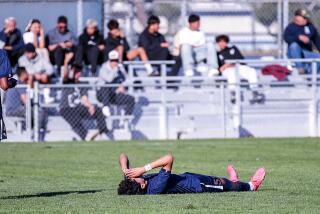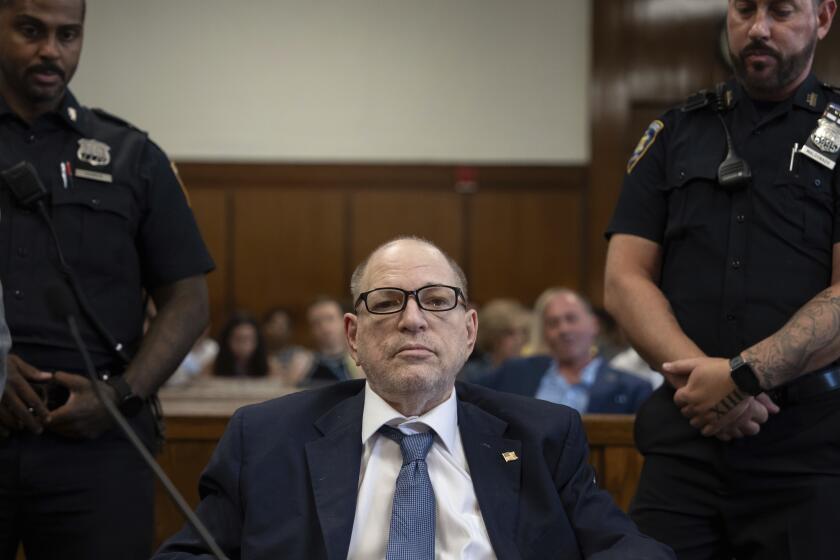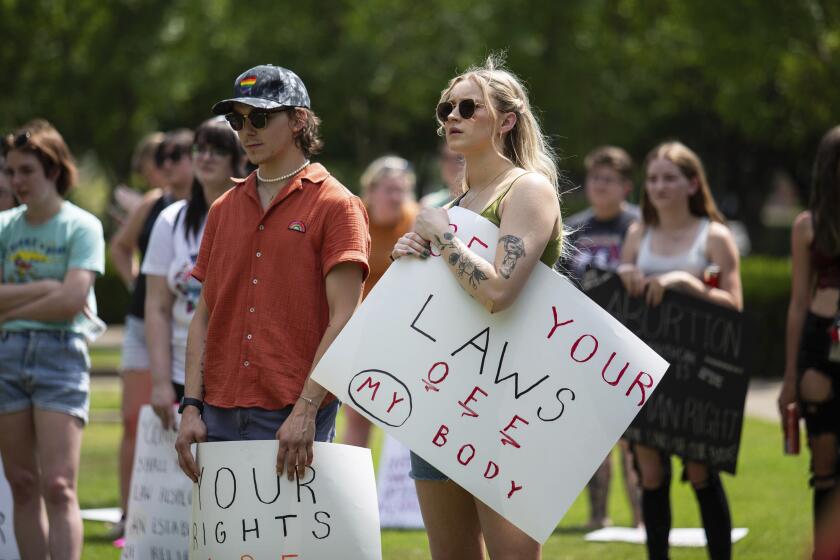Editorial: Is pro wrestling ‘essential’? It is in Florida. And that’s the way it has to be
Professional wrestling is an “essential” business in Florida, according to Gov. Ron DeSantis, meaning the sport supposedly is so important to the life and culture of the state that it should resume operations despite a statewide shutdown due to the COVID-19 pandemic, which has killed hundreds of Floridians and is projected to claim more than 6,000 by August. After all, people sheltering at home need some fresh TV content, and besides, WrestleMania and other events put on by World Wrestling Entertainment stand to make a lot of money even playing to empty seats.
In Arizona, it’s golf that is “essential.” Golf courses appeared to make the cut in Los Angeles, too, but just for a few days until officials crossed them off the list. So if you run a golf course in Southern California, you could be suffering, while your counterpart one state away is raking in cash.
And dog grooming? Well, it sort of depends. Petsmart decided on its own that its canine beauty parlors were essential businesses, according to the newsletter Popular Information, and reopened them in most states — even those that banned human hairdressers from operating shops during the emergency. Apparently, Petsmart failed to get permission before reopening, and several states ordered the doggy grooming parlors to cease their obviously inessential work.
Things get no less weird as you travel (virtually, of course) across the nation and through various enterprises. Pennsylvania kept open its marijuana dispensaries as “essential” while closing “nonessential” state-run liquor stores. And then it changed its mind about the alcohol in response to popular outcry. “Essential” is apparently in the eye of the consumer, or perhaps the industry lobbyist.
The standard would be viewed differently in, say, Wisconsin, where marijuana remains illegal and so could not be deemed essential. In California, marijuana is considered essential, and now because of the emergency — perhaps for a limited time only, perhaps not — bars for the first time can deliver alcoholic beverages directly to consumers’ doors.
There is no consistent definition of “essential.” Its meaning varies, depending on the severity and duration of the crisis, but also in accordance with the desires and demands of the people in each jurisdiction. So, too, do the financial sacrifice and damage inflicted by the rules depend on local decisions about which businesses can and cannot operate.
It may be tempting to respond to this chaos and, let’s be frank, unfairness by demanding a final, one-size-fits-all-states determination by some centralized authority. The federal government, perhaps.
But that would be a mistake. States, counties and cities have their own economies, their own values, their own public health authorities, their own constituents and their own definitions of “essential.” Maybe the official statehouse thinking was that Californians and Pennsylvanians (among others) need a little weed and wine to get through the crisis, while in Florida they supposedly need something more theatrical.
Of course alcohol, marijuana, pet grooming, golfing and many other “essential” services are not essential at all, in the sense that they can close down for a few days without endangering lives or health or causing undue deprivation. People need to get food, water and medical care. They need access to news and information, and to their elected decision makers (to influence their choices about what is and isn’t essential, among other things). It turns out they need lots of toilet paper. They need electricity and communication services. Dry cleaning? If the emergency lasts a week, probably not. If it goes on for months, as this one threatens to, it may be a different story.
Even the reasons for declaring a business or activity essential vary. In Florida, wrestling doesn’t just keep people entertained, it keeps many of them employed. But it also puts the very same people at risk (not just the stars, but the support staff, some of whom might prefer to be sheltering at home, while others would rather be collecting a paycheck despite the risk). The balance must be struck in favor of public health — but also with a wary eye on economic collapse.
The closest thing the feds have to a list of essential services is a March 19 memo from the Cybersecurity and Infrastructure Agency offering guidelines (but not dictates) on infrastructure workers. It doesn’t mention marijuana (which is illegal under federal law), alcohol (which is regulated largely by states), golf or in fact most retail operations.
The federal government’s proper, limited interest is in keeping intact services that are needed to provide a lifeline, to carry out its obligations (think: national defense) and to respond to the emergency itself.
Meanwhile, it’s tolerable for states and local governments to have the power to distinguish what is essential and what isn’t only because the power is temporary, exercised exclusively during a life-and-death emergency. When the emergency ends, so should any state’s ability to dictate what lawful service is or isn’t needed, whether it be wrestling, dry cleaning, dog grooming or anything else. That’s a decision to be made by people and their wallets. They will determine not just what’s indispensable but what’s no longer needed in the post-COVID-19 world.
More to Read
A cure for the common opinion
Get thought-provoking perspectives with our weekly newsletter.
You may occasionally receive promotional content from the Los Angeles Times.






